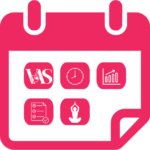
What is stress?
“If you do not make time for your wellness, you will be forced to make time for your illness – now read that again”
Stress is a physical response that occurs when we feel under pressure, or under attack. The body responds by going into fight or flight mode, releasing a cocktail of hormones and chemicals to stimulate an appropriate defence response, and shuts down unnecessary bodily functions such as digestion. This is all well good when faced with a situation, such as hitting the brakes to avoid a collision, but long term this can have a detrimental effect on your physical, mental, and emotional wellbeing.
Before I continue with how to identify stress and how to manage it, I would like to point out that stress is not all bad. It acts as a trigger to potentially harmful situations and enables us to respond quickly to them. It can make you more alert and aware of your surroundings, keep you more focused, some people say that they work better under pressure. In fact, our ancestor the caveman used stress to alert him/her of the danger of the chasing sabre tooth tiger, without the bodies stress signs mankind would not have evolved!
What are the signs of stress?
Common signs include a sudden rush of energy created by the release of hormones such as adrenaline and cortisol, increased heart rate, quickening of breath, butterflies in your stomach, sweating palms. All short-lived responses to alert us of a situation that requires an immediate reaction. But what happens when facing stress over a longer period?
Living with stress longer term will have a significant impact on your health and wellbeing, such as:
- Affects our ability to communicate with others which will have a bearing on relationships
- Compromised decision-making ability, leading to poor choices with consequences.
- Affects your digestive system, causing lethargy, increase or decrease weight ect.
- You may have trouble sleeping or even sleep too much.
- High blood pressure.
- Mood swings.
- Physical symptoms such as headaches, pains, and tension, triggered by the emotional stress.
- Loss of sex drive.
Having experienced stress over a long period of time myself I am fully aware of the impact that it can have on your wellbeing, your family, your ability to work, your whole world. Through my work as a Pilates teacher, energy and sound healer, I discovered many tools and practices that alleviated the symptoms, and then helped me manage stress.
How can we manage stress?
In a nutshell, it comes down to a consistent self-care routine.
My go-to piece of guidance is to take small daily actions, repeating them every day until they feel as part of your everyday as brushing your teeth!
Here are some suggestions that have been tried, tested, and successful:
- Breathe – stop for 1-5 minutes and focus on your breath. Ideally step outside or at least look out of a window. Focusing on your breath can very quickly calm your nervous system and bring a sense of grounding.
- Talk to a trusted friend, or even leave them a voice node/message. Just by speaking out loud about what you are experiencing can bring a sense of relief without even needing advice or a solution.
- Journaling – allow the pen to flow freely, do not edit what you write, it doesn’t have to make sense and no one need ever read it.
- Take a walk ideally in nature and focus on the trees, or listen to the birds sing. Notice how your feet strike the ground supporting you, maybe even regulate your pace by counting each step from one to ten repeatedly, maintaining the same speed.
- Eat well – buy the best quality food that you can afford, pre prepare meals so they are quick and accessible to avoid snacking or take always.
- Drink plenty of water – always keep a bottle with you to remind you to stay hydrated.
- Exercise – the best stress buster as it releases feel-good endorphins. Schedule it in as you would work commitments and lay out or pack your kit the night before. Choose a form of exercise that you enjoy; Pilates for instance is a mind body practice with an emphasis on breath work that calms the nervous system. Improving your posture can work wonders for your confidence as it creates a sense of achievement as you stand taller, stronger and feel more capable.
- Eliminate triggers – work out what situations, areas in your life create and trigger stress. Once you have identified them work on eliminating them if not reducing them.
- Learn to say ‘No’ and avoid over committing yourself, this is a big one for many!
I hope that you have found this article useful, I would love to read any comments or feedback that you have or even suggestions as to how you manage stress.
Thank you for reading.
Karen Eccles, founder of Pilates From Within, has been teaching Pilates for over a decade; specialising in classical Pilates since 2012. From her classically equipped studio in Haslemere, Karen offers tailored Pilates training solutions. She has trained hundreds of clients on their journey to improved health and wellbeing through a combination of Pilates practice, Energy and Sound Healing; a unique blend of practices that alleviates physical symptoms, resets emotions and brings equilibrium and a sense of wellbeing.
www.pilatesfromwithin.com Instagram: @pilatesfromwithin



